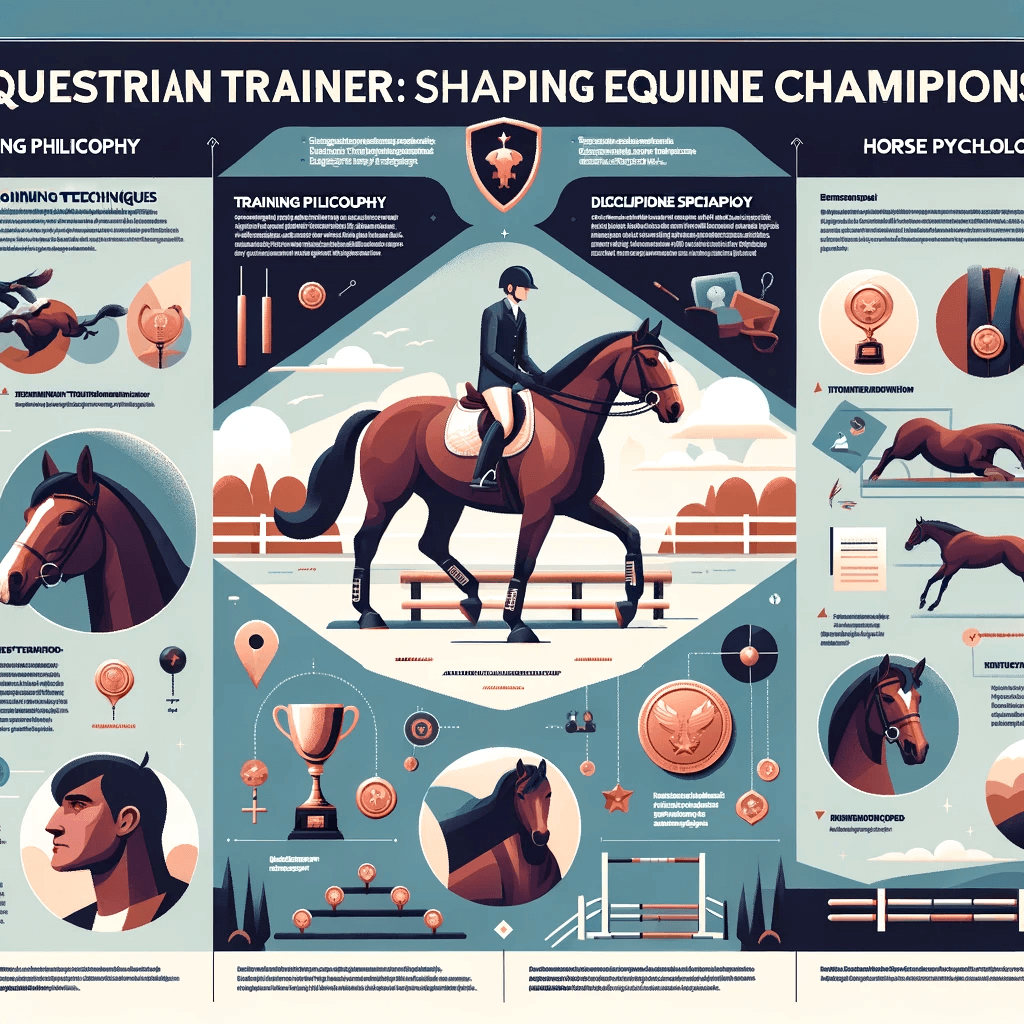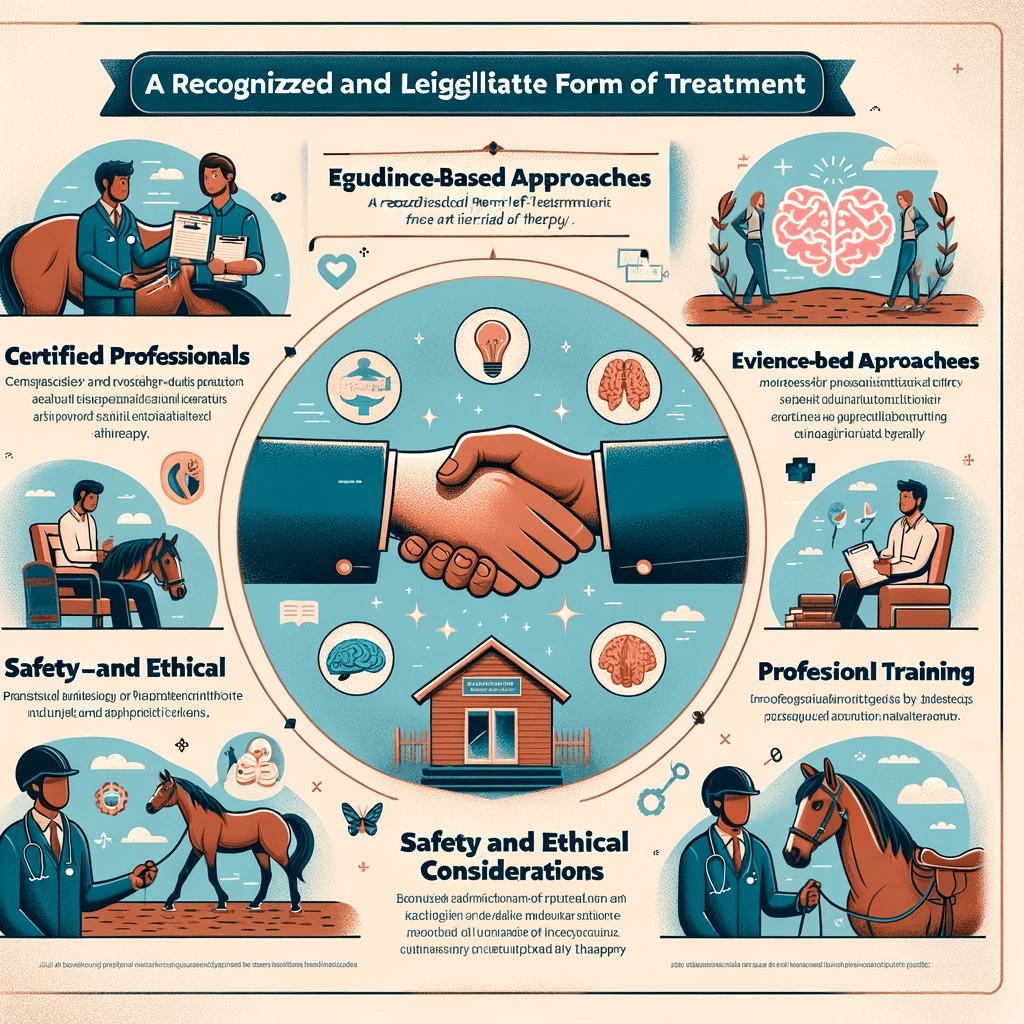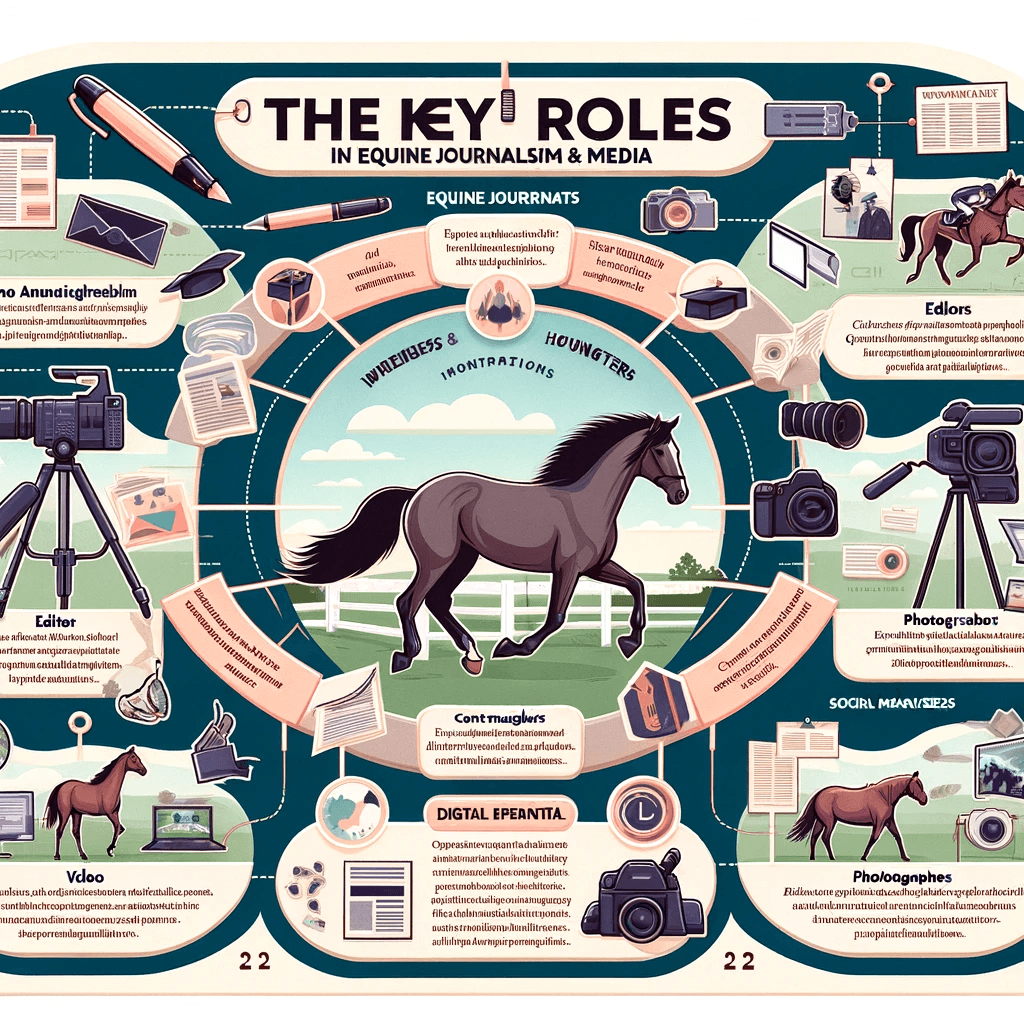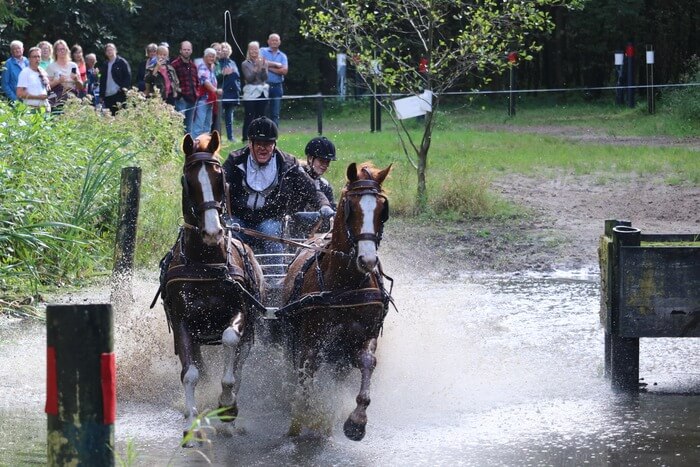Introduction:
Horses have been an integral part of human history for centuries, serving as loyal companions, means of transportation, and even partners in various professions. For those who have a deep passion for these magnificent creatures, there are numerous career opportunities available that allow you to work closely with them.
In this article, we will delve into the wide array of jobs that involve horses, shedding light on the various avenues you can explore within this unique field.
Read More: Are Horses Ruminants
Equestrian Trainer: Shaping Equine Champions

Training Philosophy and Techniques:
Equestrian trainers are the architects behind equine champions. They employ various training philosophies and techniques to build a strong foundation for both horse and rider. This includes teaching essential riding skills, refining posture, and nurturing a harmonious partnership between horse and rider.
Discipline Specialization:
Equestrian trainers often specialize in specific disciplines such as dressage, show jumping, or rodeo events. Their expertise allows them to tailor their training methods to suit the demands of the chosen discipline, focusing on precision, agility, and technique.
Horse Psychology:
Understanding the psychology of horses is a crucial aspect of their job. Trainers must be attuned to the emotional and behavioral cues of their equine companions, fostering trust and cooperation
Read More: Strangles In Horses.
Equine Veterinarian: Caring for the Health and Well-being of Horses
Diagnostic Expertise:
Equine veterinarians are diagnosticians skilled in identifying and treating a wide range of equine health issues. They utilize advanced medical technologies like X-rays, ultrasounds, and endoscopy to pinpoint ailments and develop effective treatment plans.
Surgical Precision:
In cases requiring surgery, equine veterinarians demonstrate remarkable surgical precision, often performing delicate procedures on horses with utmost care. Common surgeries include colic surgeries, joint arthroscopy, and castrations.
Preventative Medicine:
Equine veterinarians also excel in preventative medicine. They administer vaccinations, provide routine dental care, and offer nutritional guidance to maintain the overall well-being of their equine patients.
Read More: When Do Horses Stop Growing
Farrier: The Art of Horse Hoof Care
Hoof Trimming and Shoeing:
Farriers are skilled in the art of hoof care, expertly trimming and shoeing horses’ hooves to ensure proper balance and support. They use specialized tools to shape hooves and attach horseshoes, which can vary based on the horse’s activity level and specific needs.
Health Assessment:
Beyond just hoof care, farriers assess the overall health of the horse’s lower limbs. They look for signs of lameness, injury, or conditions like laminitis that can affect hoof health.
Customized Shoeing:
Each horse is unique, and farriers tailor their services to meet individual needs. Some horses may require corrective shoeing to address specific issues, while others need shoes for protection during rigorous activities.
What is the average income of a jockey?
The income of a jockey can vary significantly based on factors like experience, location, and the level of races they participate in.
On average, jockeys can earn anywhere from $30,000 to $60,000 annually. However, top jockeys who compete in prestigious races and have a strong track record can earn substantially more, often reaching six-figure incomes. It’s important to note that jockeys’ earnings may also include a percentage of the purse money won in races.
Do you need to own horses to become a horse breeder?
No, you do not need to own horses to become a horse breeder. While some horse breeders do own and manage their own breeding stock, many breeders operate as independent businesses that provide breeding services to horse owners who wish to mate their mares with stallions.
These breeders may specialize in certain horse breeds or bloodlines and offer their expertise in selecting suitable matches, overseeing breeding procedures, and caring for pregnant mares and foals. Ownership of breeding stock is not a prerequisite for a career as a horse breeder.
Read More: Why Do Horses Like Sugar Cubes
How can I become a certified equine nutritionist?
To become a certified equine nutritionist, you can follow these general steps:
Education:
Start by earning a bachelor’s degree in animal science, equine science, or a related field from a reputable university. During your undergraduate studies, focus on coursework related to equine nutrition, physiology, and animal science.
Gain Practical Experience:
Seek internships or employment opportunities at equine facilities, farms, or feed companies to gain practical experience working with horses and their nutrition.
Pursue Advanced Education:
Consider pursuing a master’s or doctoral degree in equine nutrition or a related field to deepen your knowledge and expertise. This can be particularly valuable if you aspire to work in research or academia.
Certification:
Look for reputable certification programs in equine nutrition, such as those offered by organizations like the American College of Animal Sciences (ACAS) or the American Society of Animal Science (ASAS). These programs often require passing exams and meeting specific educational and experience criteria.
Continuing Education:
Stay updated with the latest developments in equine nutrition by attending conferences, seminars, and workshops related to the field.
Network:
Build a network within the equine industry, including veterinarians, horse owners, and other equine professionals, to enhance your career prospects and stay informed about industry trends.
Practice and Consultation:
Once certified, you can work as an equine nutritionist, offering consultation services to horse owners, farms, and equine businesses to formulate balanced diets and nutrition plans for horses of different ages, breeds, and activity levels.
Read More: What Temperature is Too Hot For Horses To Be Outside
Key Skills Needed to Be a Successful Rodeo Clown:
Rodeo clowns play a vital role in rodeo events, providing entertainment and ensuring the safety of bull riders and other participants. To be successful in this unique profession, individuals should possess the following key skills:
Quick Reflexes and Agility:
Rodeo clowns must react swiftly to unpredictable situations in the rodeo arena, dodging charging bulls or assisting fallen riders. Quick reflexes and agility are essential for their safety and the safety of others.
Physical Fitness:
Being in good physical condition is crucial for rodeo clowns, as they need to maintain their stamina and endurance throughout the duration of a rodeo event, which can be physically demanding.
Sense of Humor:
Entertainment is a significant part of the rodeo clown’s role. A good sense of humor, along with comedic timing and improvisational skills, helps engage the audience and lighten the mood during intense moments.
Riding Skills:
While not always required, some rodeo clowns are also skilled rodeo riders. They may participate in events like bullfighting, where they distract and redirect bulls away from fallen riders.
Communication and Crowd Interaction:
Rodeo clowns often interact with the audience, providing commentary and engaging spectators between events. Effective communication skills and charisma are valuable assets.
Safety Awareness:
Safety is paramount in rodeo, and clowns must have a strong understanding of rodeo rules and safety protocols to protect themselves, riders, and livestock.
Read More: Gastric Ulcers In Horses
Equine Assisted Therapy: A Recognized and Legitimate Form of Treatment

Certified Professionals:
Equine assisted therapy is typically conducted by licensed mental health professionals, certified equine specialists, or therapists with specialized training in equine-assisted techniques. These professionals adhere to established ethical guidelines and standards of practice.
Evidence-Based Approaches:
Research has shown that equine assisted therapy can be effective in treating a range of mental health conditions, including anxiety, depression, PTSD, and autism spectrum disorders. Many practitioners use evidence-based approaches to design and implement their therapy programs.
Recognition by Mental Health Associations:
Equine assisted therapy is recognized and supported by mental health organizations such as the American Psychological Association (APA), the American Counseling Association (ACA), and the National Association of Social Workers (NASW).
Safety and Ethical Considerations:
Practitioners of equine assisted therapy prioritize the safety and well-being of both clients and the horses involved. Ethical considerations include informed consent, confidentiality, and appropriate treatment protocols.
Professional Training Programs:
There are educational and training programs available for professionals interested in incorporating equine assisted therapy into their practice. These programs provide the necessary skills and knowledge to deliver therapy effectively and safely.
Insurance Coverage:
In some cases, health insurance providers may cover equine assisted therapy sessions when provided by licensed and credentialed professionals, further underscoring its legitimacy.
Can Equine Photographers Work as Freelancers?
Yes, equine photographers can work as freelancers. Many equine photographers operate as independent professionals, offering their photography services to clients in the equine industry.
Freelance equine photographers may specialize in various areas, such as equine portraiture, event photography, or capturing the beauty of horses in natural settings. They often work on a project-by-project basis, partnering with horse owners, equestrian publications, and equine businesses to create stunning visual content.
Read More: How Much Grain Does A Horse Eat Per Day
Are There Any Scholarships Available for Those Pursuing Careers Involving Horses?
Yes, there are scholarships available for individuals pursuing careers involving horses, particularly in areas like equine science, veterinary medicine, equestrian studies, and related fields. These scholarships are often offered by universities, colleges, equine associations, and philanthropic organizations. Some well-known organizations and programs that provide equine-related scholarships include:
American Quarter Horse Association (AQHA) Foundation Scholarships:
AQHA offers various scholarships for students pursuing degrees related to the equine industry.
American Morgan Horse Association (AMHA) Scholarships:
AMHA offers scholarships to students with an interest in the Morgan horse breed.
National Reining Horse Association (NRHA) Scholarships:
NRHA provides scholarships to students pursuing careers in the reining horse industry.
Local and Regional Horse Associations:
Many local and regional horse associations and clubs also offer scholarships to support students in their respective communities.
Career Paths in Equine Journalism and Media: Communicating the World of Horses

In the diverse world of equine careers, equine journalism and media stand out as dynamic and impactful paths for those passionate about horses and storytelling. This sector offers a variety of roles that involve documenting, analyzing, and sharing the many facets of the equine world.
Roles and Responsibilities:
Equine Journalists and Writers:
These professionals write articles, features, and news stories about various aspects of the horse industry, including sports, health, and lifestyle. They often contribute to specialized equine magazines, websites, and newspapers.
Editors and Content Managers:
Responsible for overseeing the creation and curation of content, editors in equine media ensure that information is accurate, engaging, and relevant to the audience. They play a pivotal role in shaping the editorial direction of publications.
Photographers and Videographers:
Capturing the beauty and essence of horses and horse-related events, these creatives produce visual content that tells compelling stories. Their work is crucial for magazines, digital platforms, and marketing materials.
Digital Content Creators and Social Media Managers:
With the rise of digital media, these professionals create and manage content for websites, social media platforms, and online campaigns, engaging the community and promoting equine-related activities and businesses.
Conclusion:
Working with horses can be a rewarding and fulfilling career choice for those who have a deep passion for these magnificent animals. Whether you’re interested in sports, healthcare, or even the arts, there are diverse job opportunities available that involve horses.
Each of these professions contributes to the well-being and success of these incredible creatures, making a positive impact on both horses and their human counterparts.
FAQs
What are the main benefits of practicing mindfulness meditation?
Mindfulness meditation offers numerous benefits, including reduced stress, improved focus, enhanced emotional well-being, and better self-awareness. It can also promote relaxation and help individuals manage anxiety and depression.
How can I prepare for a job interview effectively?
To prepare for a job interview, research the company, practice common interview questions, and formulate thoughtful questions to ask the interviewer. Dress professionally, arrive on time, and bring copies of your resume. Confidence, good communication, and a positive attitude are also key.
What are the best practices for maintaining a healthy work-life balance?
Maintaining a healthy work-life balance involves setting boundaries, prioritizing self-care, and managing time effectively. It’s important to schedule regular breaks, disconnect from work when necessary, and spend quality time with loved ones to avoid burnout and stress.
How can I improve my financial literacy and make better financial decisions?
Improving financial literacy involves educating yourself about budgeting, saving, investing, and understanding financial products like loans and credit cards. You can take courses, read books, or seek advice from financial professionals to enhance your financial knowledge.
What is sustainable living, and how can I adopt eco-friendly practices in my daily life?
Sustainable living is a lifestyle that aims to reduce one’s environmental impact by making eco-friendly choices in daily activities. You can adopt sustainable practices by reducing waste, conserving energy and water, using public transportation or carpooling, supporting local and eco-friendly products, and minimizing single-use plastics.
